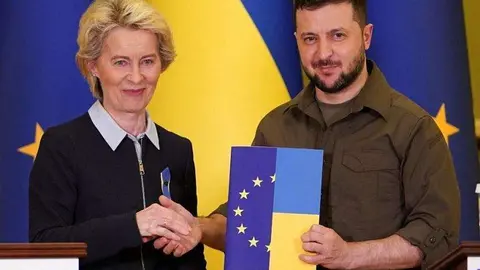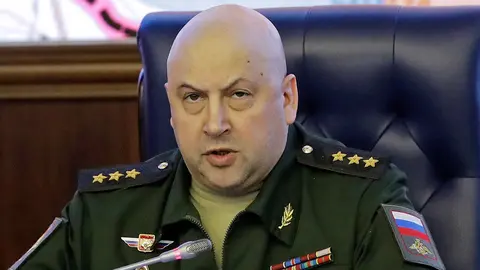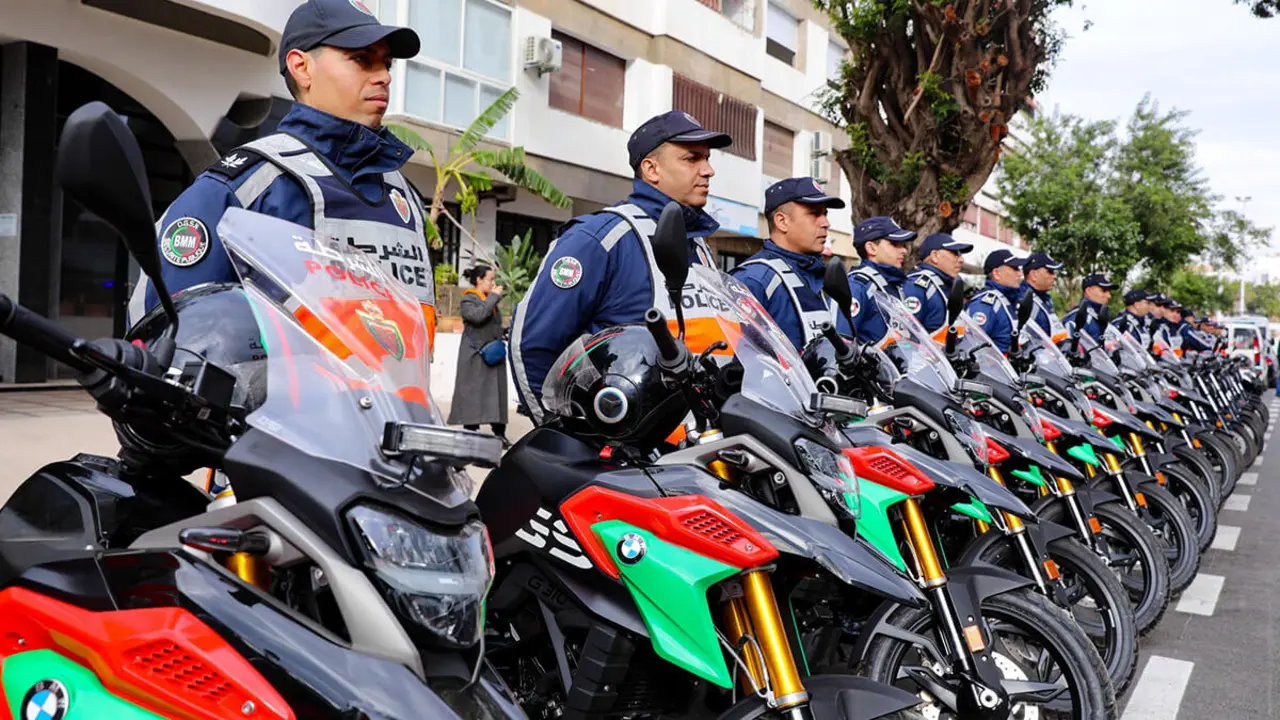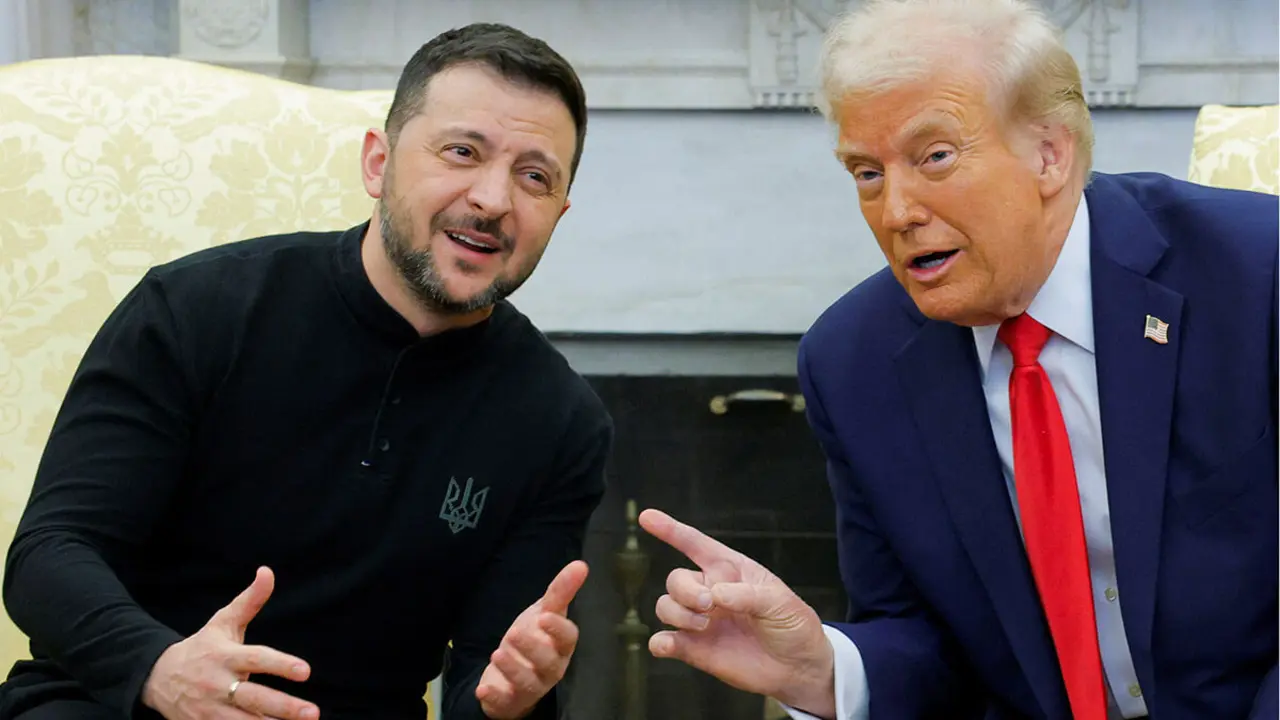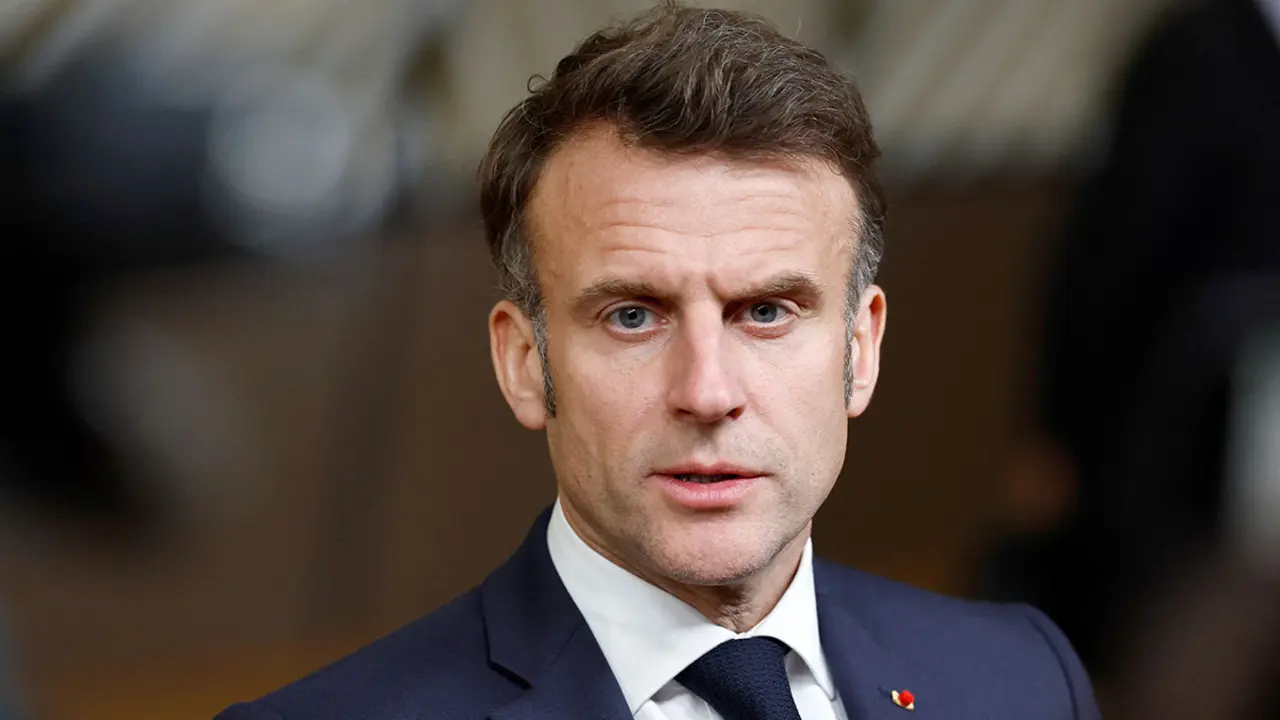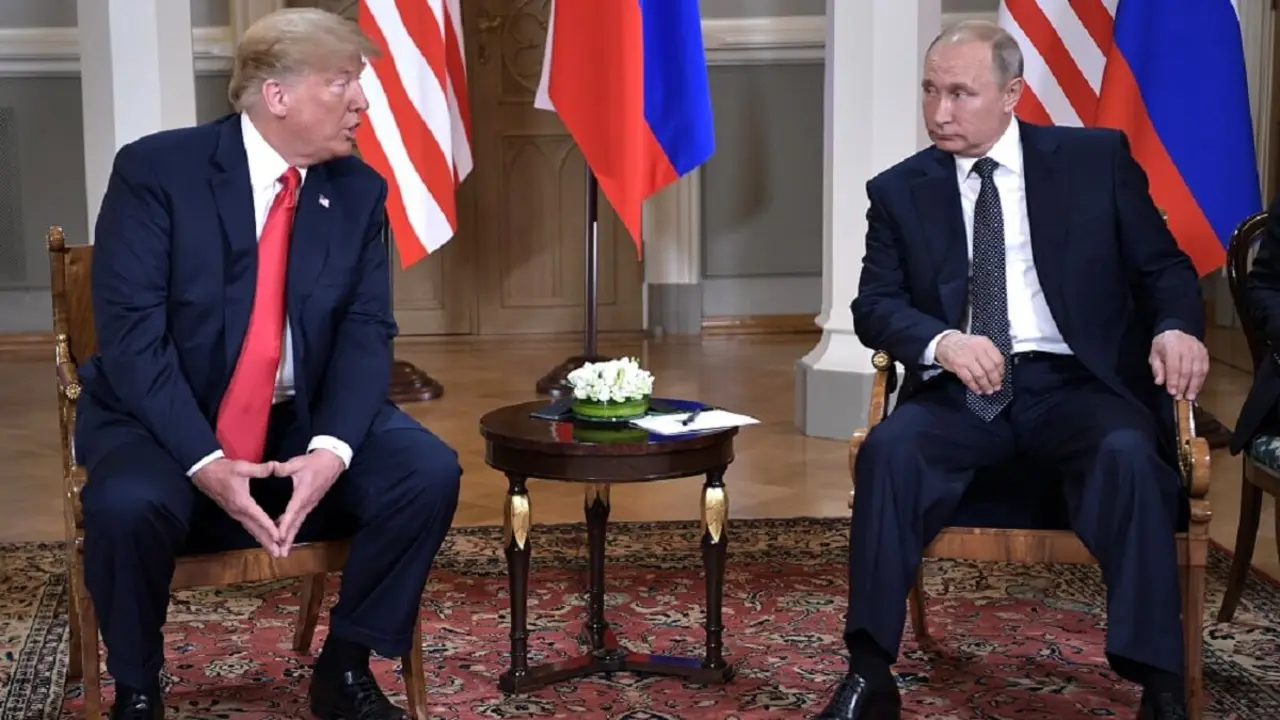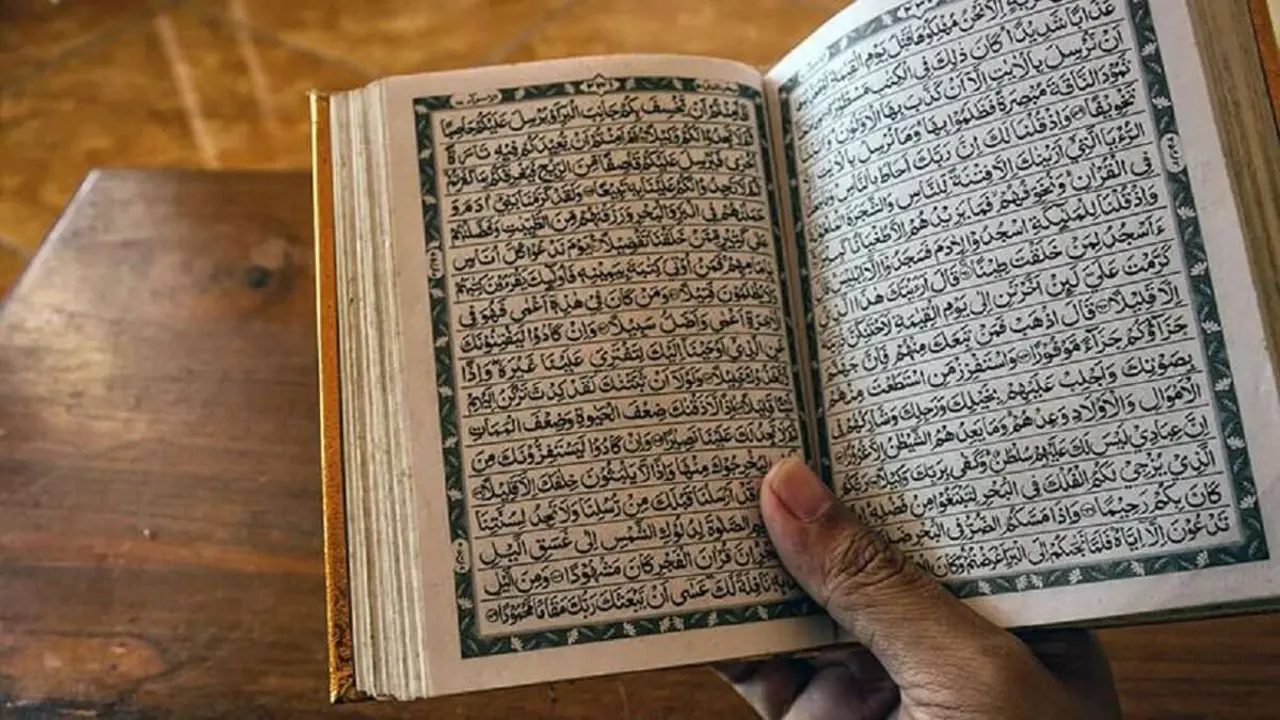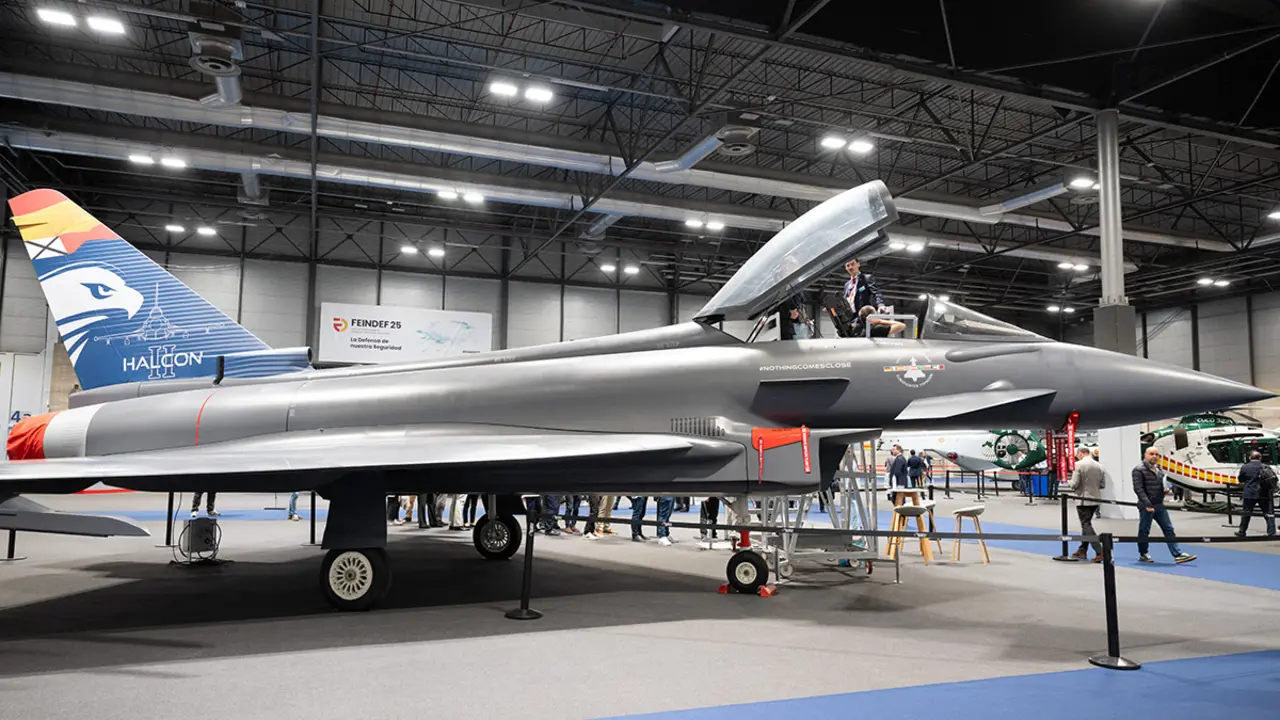EU reaffirms long-term commitment to Ukraine

The European Union remains committed to Ukraine. From Brussels, European leaders have agreed to support the nation "for as long as necessary" by offering "future security guarantees". These issues were addressed during a two-day summit of the European Council where the EU-27 again condemned the Russian invasion and the recent destruction of the Kajavoka hydroelectric power plant dam.
The meeting was also attended by NATO Secretary Jens Stoltenberg, who emphasised military support in the midst of the counteroffensive, and Ukrainian President Volodimir Zelensky, who urged European leaders to work on a new round of sanctions against Russia.
🇪🇺 EU leaders reiterate their steadfast support for 🇺🇦 Ukraine for as long as it takes.
— EU Council (@EUCouncil) June 29, 2023
➡️ So far, the EU and its member states have provided over €77 billion in assistance.
More info 👇#StandWithUkraine #EUCO
Among the key points of the meeting were military support for Kiev and training for Ukrainian soldiers. "Military support for Ukraine must be maintained in the long term," stressed the EU's High Representative for Foreign Affairs, Josep Borrell. Since the beginning of the conflict, the EU and its member states have supplied the Ukrainian army with weapons to confront Russian troops, as well as financial aid packages worth more than 77 billion euros.
The head of European diplomacy also pointed out that the training of the Ukrainian military must continue, as well as the "modernisation of the army". "Ukraine needs our commitment to continue to ensure its security during and after the war," he added. To maintain this commitment at the military level for as long as necessary, Brussels has again made available the EU Military Assistance Mission and the European Peace Facility.
At #EUCO, I am updating the leaders on the latest support to #Ukraine on the military side:
— Josep Borrell Fontelles (@JosepBorrellF) June 29, 2023
- Top up of #EPF with €3.5bn
- over 24000 soldiers trained by EUMAM
- delivering on ammunition across the three tracks
- overall EU military support for Ukraine amounts to over €15bn pic.twitter.com/ozViVwEb2e
However, as the Financial Times reports, the agreements reached on military matters met with some resistance from neutral countries such as Ireland, Malta and Austria. According to European officials, these nations "want clarity on what these commitments would and would not entail".
"We cannot commit to mutual defence because that would violate our policy of neutrality," Irish Prime Minister Leo Varadkar told reporters ahead of the summit.
EU condemns Iranian and Belarusian support for Moscow
In addition to military support, European leaders underlined their willingness to provide additional assistance to Ukraine following the destruction of the Kajavoka dam to deal with the "humanitarian, ecological, agricultural and economic" consequences. Brussels warned that the incident represents a risk to the safety and security of the Zaporizhya nuclear power plant.
Kherson waterfront: The force of the June 6 Kakhovka dam flood waters ripped up asphalt, knocked over trees and streetlights, and ripped away fencing. pic.twitter.com/dwqnhvgWdA
— Euan MacDonald (@Euan_MacDonald) June 27, 2023
The EU-27 also underlined the importance of ensuring stable and sustainable financial support for Ukraine in the future. On this point, the European Council calls on the European Investment Bank to reinforce its infrastructure support to Ukraine.
With regard to Ukraine's accession to the EU, the European Council appreciates the "determination" and "enormous efforts" made by Kiev in its accession process, encouraging the Ukrainian authorities to continue "on their path of reforms". The EU also acknowledges 'the initiatives' recently taken by Georgia towards the same goal.
Ahead of the summit, European Parliament President Roberta Metsola expressed her desire to start "serious" negotiations on Ukraine's candidacy in mid-December. Metsola referred to the "extraordinary" efforts made by Kiev, "even and especially in times of war". "If the reform criteria have been met, we must respond," she said, according to POLITICO, "I remain optimistic that this can be achieved this year.
On #ConstitutionDay, we reiterate our support for Ukraine’s right to exist. For their right to choose their own destiny, to live free and fearless.
— Roberta Metsola (@EP_President) June 28, 2023
We mark the bravery, defiance and resilience of a people who inspired the world.
We are with you for as long as it takes 🇪🇺🇺🇦 pic.twitter.com/JQt9fGMV2N
On the other hand, during the meeting they again denounced the crimes committed by Moscow, in particular the deportations and illegal transfers of Ukrainian children to Russian or Belarusian territory. They also condemned the military support the Kremlin receives from its allies, with Iran and Belarus playing a prominent role. "Minsk must stop allowing Russian armed forces to use its territory, for example for the deployment of tactical nuclear weapons. Tehran must stop providing drones to Russia," says a document published after the summit.
Greater' danger after Wagner mutiny
This European summit comes almost a week after the uprising orchestrated by Wagner group leader Yevgeny Prigozhin, who threatened to oust the Moscow authorities. The mutiny has shown the weaknesses of Russian leader Vladimir Putin, as well as disagreements between military leaders.
However, Borrell warned that a "weaker" Putin also represents a "greater danger". Therefore, the European diplomat asked to be "very conscious of the consequences". Borrell explained that until now Moscow was seen as a threat because of the force used in Ukraine. Now, however, Russia must also be seen "as a risk because of internal instability".
Other European leaders agree with Borrell, including Commission President Ursula von der Leyen, who said the uprising could provoke "aftershocks". Lithuanian President Gitanas Nauseda stressed that "any movement in Russia's political system will have repercussions" for European security.

